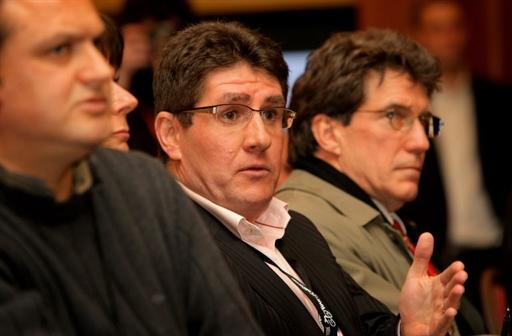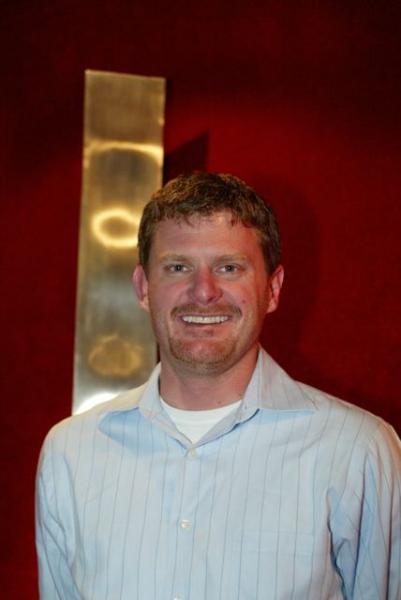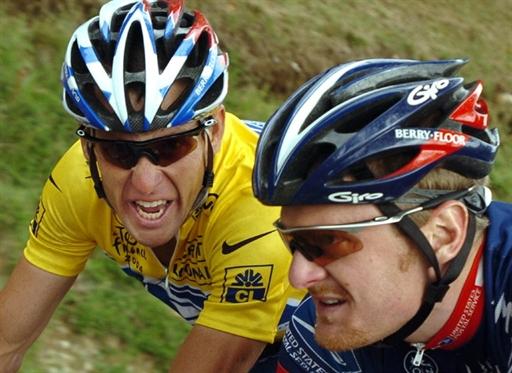Kimmage questions UCI role in US Postal FDA case
Irishman believes Landis is telling the truth



Paul Kimmage has expressed his hope that the federal investigation into allegations of doping at the US Postal squad not only exposes riders who may have cheated but also sheds further light on the UCI’s regulation of the sport.
In May, Floyd Landis alleged that his former US Postal team mate Lance Armstrong had tested positive for EPO at the 2001 Tour de Suisse but that the news was covered up after a financial agreement was reached with the UCI. For Kimmage, Armstrong’s potential positive test is less important than the accusations that the UCI colluded in protecting a high-profile rider.
“It’s not enough that Lance Armstrong is exposed as a cheat, we need to know about who facilitated this, we need to know about the UCI’s role in this and unless that happens the sport cannot move forward, it’s going to happen again, it’ll just be somebody else next time,” Kimmage told Dutch television station NOS.
Kimmage revealed that he has spoken extensively with Landis and he is convinced of the veracity of the American’s description of the doping practices he encountered during his career.
“I would put my hand in the fire right now and say that Floyd Landis is without question telling the truth,” Kimmage said. “How do I know that? Well I spent seven hours with him and that’s a long time and I asked him a lot of questions and the detail that he gave me about what happened on that team [US Postal] and about what happened to him in professional cycling, you cannot make that up.
“You would have to be an absolute psychopath to make up the level of detail that he was able to give me about what went on in that team.”
Kimmage rode for the RMO and Fagor teams for four years in the 1980s, finishing the Tour de France as a neo-professional in 1986. On retiring, he wrote his seminal book Rough Ride, which powerfully recounted the difficulties of competing in a sport where doping was rife. Now a journalist with the Sunday Times, Kimmage views Armstrong as emblematic of the problems cycling has failed to conquer in the past twenty years.
Get The Leadout Newsletter
The latest race content, interviews, features, reviews and expert buying guides, direct to your inbox!
Kimmage and Armstrong shared a frosty exchange at a press conference ahead of the 2009 Tour of California after Armstrong took exception to the Irishman labelling him as a “cancer” in the sport. Kimmage stood by this description when speaking with NOS.
“This is the cancer. I regard doping in sport as a cancer and this is the metaphor used to describe him as a cancer in the sport,” Kimmage said.
Kimmage also confessed to being uncomfortable with the legend that has built up around Armstrong’s recovery from cancer in the late 1990s.
“The phrase used often is ‘Lance Armstrong beat cancer.’ Look, the reality is that Lance Armstrong got lucky, ok? That’s what it is,” he said. “If you survive cancer you’re bloody lucky. You don’t survive cancer because you are better than anybody else or because you do things differently than anybody else, you survive cancer because you are lucky. Lance Armstrong got lucky and if you want to sell luck to people, then that’s fine, and if they want to believe in that, then that’s fine.”
While the precise nature of FDA special agent Jeff Novitzky’s investigation into the allegations of doping at the US Postal remains shrouded in mystery, Kimmage is confident that a government investigation is more likely to yield tangible results than one carried out within the sport.
“These people [federal investigators] don’t mess around,” he said. “You tell lies to the UCI and that’s fine. You tell lies to Jeff Novitzky and you go to jail.
“This is the problem for Armstrong and his people because some of the people left with him now who have been loyal to him along, they will be loyal to him but they won’t go to jail for him. And for the first time I do think we’re going to see a true picture of what’s been happening for the last ten years.”

Barry Ryan was Head of Features at Cyclingnews. He has covered professional cycling since 2010, reporting from the Tour de France, Giro d’Italia and events from Argentina to Japan. His writing has appeared in The Independent, Procycling and Cycling Plus. He is the author of The Ascent: Sean Kelly, Stephen Roche and the Rise of Irish Cycling’s Golden Generation, published by Gill Books.